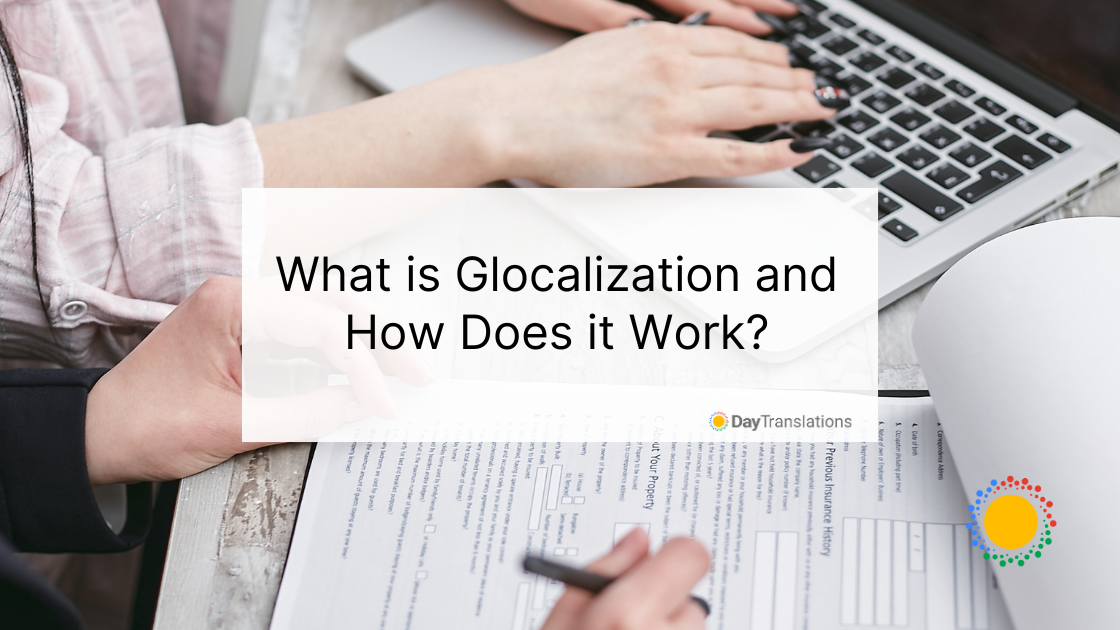More companies are exploring foreign markets today, as countries open their doors to international trade and global marketing. However, local businesses from English-speaking countries initially thought that English is enough for them to penetrate foreign markets and international audiences. But contrary to popular belief, the English-speaking world is much smaller than we believe it to be.
Market analysis and global studies performed by social scientists later revealed that consumers in foreign markets prefer to buy products and services that are available in their own local language. Thus, translation companies were called to help translate websites, product information, and marketing and advertising materials. But that wasn’t enough, as local markets and consumers wanted something more relevant to local cultures. There was ever-growing importance for a service that could break the language barrier, not just on a national level, but on regional levels too.
Localization is the answer, where websites, products, and information conform to local culture and preferences. Thus, multinational corporations have their materials and information localized so it addressed the consumers in their local language. Aside from translating written materials, they also changed colors, layouts, images, fonts, currency, date and time formats, and other elements to conform to a region’s culture. In essence, this is what enables businesses to offer their consumers a truly global product. But was that enough to see an uptick and increased sales? Not for all businesses. And this is where glocalization comes in.
Then what is glocalization?
Glocalization, according to Roland Robertson, a sociologist, is a term coined by economists in Japan to explain their strategies for global marketing. It came from the words globalization and localization. It was mentioned in the 1980s Harvard Business Review articles from economists in Japan. The term was popularized by Robertson.
Glocalization has many descriptions. The term is often used to reference community organizing and various business processes. It is the simultaneous occurrence of particularization and universalization of a brand’s service or product to suit contemporary social settings. Plus, it is the adaptation of the product to the culture or locality of foreign markets. It is the moderating factor on the conditions in the local market that faces pressures from the global business environment. Glocalization is for the service or product developed for global distribution that is altered to fit the local consumer.
In glocalization, a product that is marketed globally is tailored to adjust to the preferences of consumers and adapt to local customs and laws. When a product is glocalized, more interest is given to it by the consumers. Even if the product is something that can be used by everyone, its localization turns it into something more applicable to the particular individual, and his/her needs and context.
How does glocalization work?
Glocalization works better for businesses with decentralized management structures and those competing in various cultural settings on global levels. Glocalization is a big investment but it will pay great dividends. It gives local businesses wider access to a bigger target market in different cultures. The process enables different countries to compete more effectively in the global market.
It extends to localizing ad campaigns and marketing thrusts to make them friendlier to local consumers, to encourage them to accept the products that come from a different country.
Glocalism affects international business in different ways:
- A local event can impact the global market in the same manner that a global event can have a big relevance to the economy of the local market. This means that there is an interconnection among things. For example, an exporting country where a natural disaster occurred may not be able to supply the resources needed for manufacturing in the importing country temporarily. When there is political unrest in an oil and gas exporting country, the cost of these petroleum products may increase in the importing countries.
- The company adapts its product or service to each locale or culture where they market the product. The adaptation on local and regional levels helps to position the company to have relevance in the local culture, with its inherent values, perceptions, and nuances. Glocalization focuses on allthe target markets.
- Glocalism pushes the services and products to the local and global consumers simultaneously. This means reaching to consumers in all the markets the company serves and at the same time, the local clients want to know if the brand understands them and could meet the needs and wants of the local users.
Effects of glocalism on social media
Glocalism was trending as early as 2013. Many glocal and global studies predicted that social media would make it even more popular within the next decade. Aside from glocalism, cultures, economies and local customers also exert power in the world economy. Why? Because there’s a need for language translation for products and services. At the same time, these products and services should be able to speak to local users in a manner that is relevant to them.
Effects of glocalism on localization and translation
The cultural relevance of the products or services has higher importance than the translation of materials into the language spoken in the target market. Companies should be working with professional language services providers like Day Translations, Inc., which has a team of native speakers who reside in the target localities with a deep understanding of local customs. With glocalization, the company cannot only claim that it speaks the language of the local market.
Differences between localization and glocalization
Localization and glocalization are very similar and support each other. It’s like two interdependent economic systems. But they have different definitions. In localization, we address the cultural and linguistic barriers on global levels, based on market research. But with glocalization, we’re technically enabling the product to get it ready for localization, which is the way to reach globalization status. In a sense, the commonalities they share is that both processes adapt business offerings on continental and global levels.
To put the process in more simple terms:
Translation transforms the messages from the source language into the target language. Localization deals with transforming the nonverbal items, including sound effects, music, pictures, and textual components like the fonts, color scheme, and layout to make everything appeal to local users and local circumstances. Translation and localization lead to product repackaging to make it a global product that is perceived in local contexts.
Localization and globalization are ways to respond to the expanding market. Translation helps technological, economic, commercial, and cultural globalization. It is a means to create ”cultural identities” by changing a foreign culture to be subjectively domestic.
Translation facilitates communication with particular audiences. Globalization promotes the influence of prevailing cultures and languages via translation. Conversely, localization promotes the status of smaller cultures and languages by enabling them to vie against the major languages.
Given this context, it seems that there is a conflict between globalization and localization. But this is not the case because the two processes are complementary. The two essentially promote the poorly balanced position of the minor language vis-à-vis the major language. Still, they both enrich and support the minor cultures and languages.
Effects on economies of the local markets
For larger economies, glocalization delivers mixed results. Because glocalization makes the larger companies compete more effectively, the quality of competition should go higher and the prices should go down. Also, more goods would be available in the market. However, the opposite happens since larger companies have immediate access to budgets for glocalization. They can bring the prices down but they also take a bigger slice of the market, which can hurt the local and smaller businesses because the production costs of larger corporations are smaller. This can reduce the competition, which can drive prices higher eventually.
Meeting of local and global forces
Glocalization occurs simultaneously as tendencies that make things universal and particular, which affects the economic, political, and social systems. It shows that the increasing importance of global and continental levels occurs together with the increasing prominence of regional and local levels.
In the context of marketing, glocalization signifies the creation of services or products for the international market by adapting the product to local or regional culture. As an example, the mascot of McDonald’s, Ronald McDonald, is famous around the world. However, in France, the McDonald’s branches use Asterix, which is a more popular and accepted local cartoon character.
Glocalization encourages innovation and diversity and the development of hybrids especially in areas where immigrants and native residents need to adapt to each other, while the new arrivals have to maintain connections with families they left behind.
Globalization largely benefitted from translation, and the service is very important for a society that globalizes at a tremendous pace. In turn, the translation industry receives a big boost from globalization. Today, corporations not only focus on marketing domestically. They are opening new doors to international markets where competition is fiercer. It becomes highly important for translation agencies to attract business from emerging markets like India, China, and other parts of Asia so that they can compete against other countries.
Wrapping Up
Glocalization is a new term that companies should know. People want to migrate to other countries because of the availability of opportunities for human development, jobs that pay higher, and services with higher value. Urban centers grow denser and they become primary locations for interpersonal systems for learning, collaboration, exchange of resources. They also turn into areas where industries congregate. The urban centers grow into megacities. Due to this, one has to customize services and products to provide better service to the diverse market of different ethnicities with different cultural thinking and product preferences.
Glocalization also benefits from transcreation, which goes beyond simple translation or localization, creating new campaigns and messages. While the exact meaning of words can change, transcreation keeps the spirit of the brand or story to a new audience on international marketing campaigns.
Do you agree with our thoughts on glocalization? Share with us your experiences with translation, localization, and glocalization. If you need more various language services, get in touch with us via phone. Call us (1-800-969-6853) or email ([email protected]) any time or day of the week.











